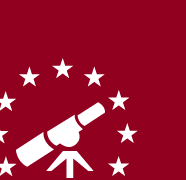Politics doesn’t need Science
Last week I was attending the European Congress of Biotechnology, where a nice session was organised on the topic of Responsible Research and Innovation. After a very productive day, at the speakers’ dinner I was lucky enough to seat next to Professor Anne Glover, a bright microbiologist and a brilliant person to talk to. Prof Glover was appointed in 2012 as Chief Scientific Adviser to the President of the European Commission. During dinner she was talking about the many difficulties in independent evidence gathering during political processes at the European commission and how much scientific based evidence is lost during decision making. A position she also expressed publicly in other occasions. Just this week, I read that Greenpeace and other NGOs wrote a letter to the new president Juncker, to ask to scrap the position of Scientific Adviser.
According to Greenpeace “The post of scientific adviser […] undermines in-depth scientific research and assessments carried out by or for the Commission directorates in the course of policy elaboration”.
In few words, an independent scientist advising the President is not transparent: it’s much better for the Directorates to pay companies or consultants to produce specific pieces of information as requested, rather than involving experts who can independently conduct an analysis.
Politics doesn’t need Science, after all. Especially when scientific evidence is independent and doesn’t serve a political agenda.
Anne Glover expressed a couple of times her position on GMOs, and it’s been regarded by NGOs as “one-sided”, as it usually happens when it doesn’t coincide with their position. This might be a much simpler reason for asking the new President to scrap such a position, if not attacking the person herself.
In reaction to NGOs letter, at least two others have been signed: one with signatories including the European Academies’ Science Advisory Council, Sense About Science and the Royal Institution, defends the position of Scientific Adviser and states: “Policy makers or lobbyists who seek to remove scientists because they don’t like their findings or advice do so at the peril of their citizens.” Many academics have signed this petition, including Marc Van Montagu, President of the European Federation of Biotechnology.
Do we really need Science in Politics?
My personal opinion is: yes, very much! There are too few scientists in decision-making, and in some countries they are almost absent. In most of the countries they are the lowest represented category in Parliaments.
Decision-making is not just about facts: that is a very important concept, often to be reminded to Scientists who engage with the public, or work at the interface between Science and Society.
At the same time however, independent scientific evidence, and assessment of phenomena, are essential to take informed and responsible decisions. The absence of this evidence is often the cause of misjudgement and lack of forward planning.
It is quite clear why some NGOs (who should be demanding for scientific advice, and instead ask for avoiding it) are quite allergic to this topic.
What will be the position of our representatives? What will be the position of Italy, currently president of the European semester?
I believe responsible citizens should sign the petition, and circulate as much as possible this information in order to press their representatives and Governments to support and expand independent scientific advice in national and European institutions.






